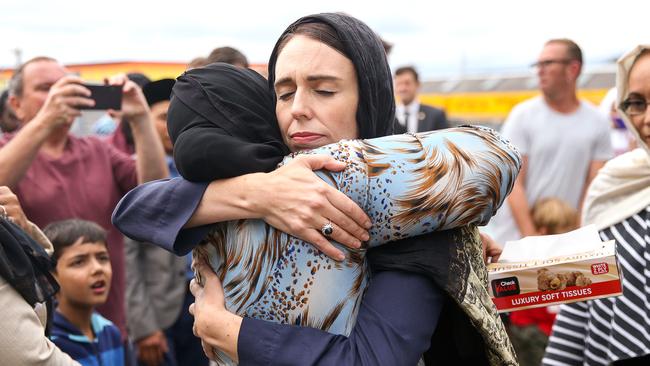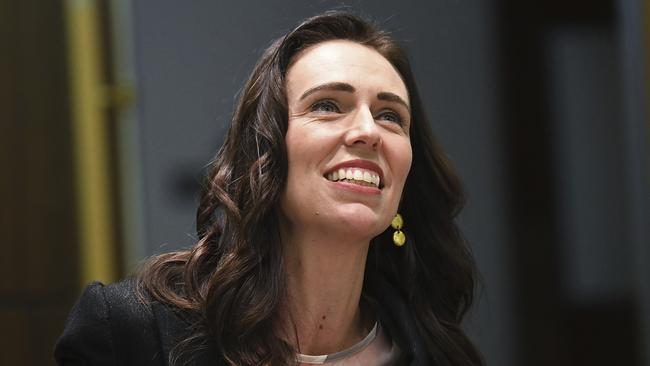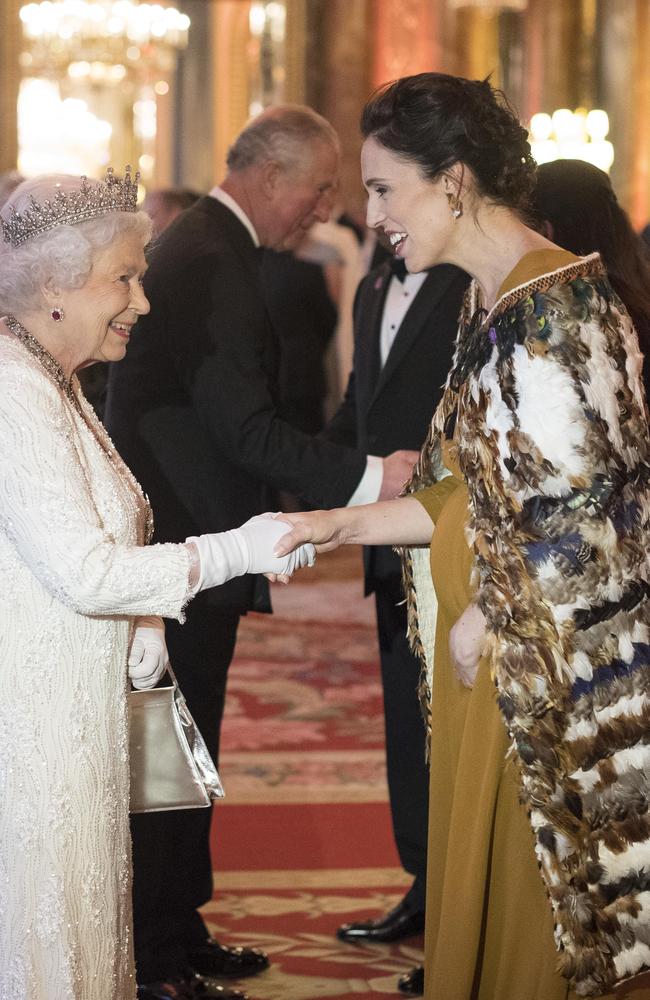New Zealand PM Jacinda Adern popularity waning
New Zealand Prime Minister Jacinda Ardern won international acclaim for her compassionate leadership in the wake of the horrific Christchurch terror attack, but back home her popularity is starting to wane, writes Clare Armstrong.
NSW
Don't miss out on the headlines from NSW. Followed categories will be added to My News.
New Zealand Prime Minister Jacinda Ardern won international acclaim for her compassionate leadership in the wake of the horrific Christchurch terror attack, but back home her popularity is starting to wane.
As her government struggles to progress its reform agenda in the midst of a weakening economy and a high-profile land dispute, Ms Ardern’s approval rating last week dropped four points to 41 per cent — 10 points lower than in April after the Christchurch attack.
Since taking office in 2017, Ms Ardern has frequently been accused of over-prioritising foreign affairs, a perception her opposition capitalised on this week when she missed parliament to visit the remote New Zealand territory of Tokelau — a four-day, 3,500km journey — while major protests raged at home.

New Zealand National Party leader Simon Bridges branded Ms Ardern a “part time prime minister,” arguing she should have instead made the trip during a parliamentary recess.
As Ms Ardern travelled to Tokelau, her government was left behind to deal with two protests, including the occupation of land slated for residential development in Auckland at the Maori settlement of Ihumātao, and calls to overhaul the state’s child welfare amid a series of controversial cases in which Maori children were taken into state care. Maori support
is significant for Ms Ardern’s Labour Party, and expectations are high for the coalition government to deliver.
The day before she left for Tokelau, Ms Ardern brokered an agreement to put the Ihumātao development on hold while a solution is sought.
It was an “elegant manoeuvre” that bought her more time, but Ms Ardern will still need to fix the problem says former political producer of The Nation and Q+A and editor of pundit.co.nz Tim Watkin.
Mr Watkin said Ms Ardern’s popularity abroad did not necessarily hold up back home when there were “still promises to be kept”.
“When you get a global following on a story like Christchurch, the world sees you in a different way but at home she’s still a Prime Minister who has been in the public eye for most of her adult life,” he said.
“We saw it with leaders like (former German Chancellor Angela) Merkel and (former US president Barrack) Obama who were rockstars internationally even when support was falling at home.”
Mr Watkin said Ms Ardern was “struggling to live up the hype” post-election.
“There was a lot of contextual support around her election win — a tired three term government, her own party had been in trouble for a long time and she was seen as a fresh new voice,” he said.

“She talks a good game and inspires a lot of support, but she’s living with coalition partners who disagree with her on a lot of issues, it’s pretty widely viewed she’s got an average cabinet and her government has struggled to be as transformative as she’d like it to be.”
New Zealand’s foreign minister Winston Peters, the founder and leader of New Zealand First, handed Ms Ardern the top job after he backed Labour over the National Party to form government.
“The foreign policies of New Zealand First and Labour are quite distinct and the government hasn’t really reconciled that in a way that could be described as any kind of Ardern doctrine, it’s Peters’ doctrine appearing to be in the ascendant at the moment,” Mr Watkin said.
But despite the drop in the polls Ms Ardern remains miles ahead of her competitors — Mr Bridges polled a poultry six per cent as preferred prime minister — meaning Labour are unlikely to be worried.

“In context I think the drop in the poll is a very minor blip, she was always going to come down after the surge following the mosque attacks,” Mr Watkin said.
Meanwhile, managing director of New Zealand think tank Exceltium Matthew Hooton said the shortcomings of Ms Ardern’s coalition government have been exposed as economic metrics such as unemployment — which is expected to rise to 4.4 per cent for the second quarter of 2019 — and poverty start to go backwards.
“The sheer incompetence of her government can’t be hidden anymore,” he said.
“She was elected on major issue of housing, but doesn’t have a housing policy and on its own metric it has failed.
“Unemployment fell but has started to rise again … most of the measures of poverty and inequality have worsened.”
Mr Hooton said a lack of “material progress” on climate change — a vote winner in New Zealand — had also hurt Ms Ardern domestically.
“Anything outside the non-pageantry aspects of her jobs, she is woeful, and it’s the reason why, despite her enormous interpersonal skills and her outstanding emotional leadership after Christchurch that she isn’t as popular as (former long-serving Prime Minister) John Key,” he said.
Mr Hooton said Ms Ardern was “unbelievably good” at the more symbolic aspects of her job.
“If she was a sovereign rather than a Prime Minister she hits the job description 100 per cent,” he said.
“She was at Buckingham Palace and she wore a Maori cloak personifying our nation — young, quite liberal, bi-cultural — people just loved that.
“If she didn’t have governmental responsibilities you just couldn’t get anyone else in the world that has the skills she has.”


